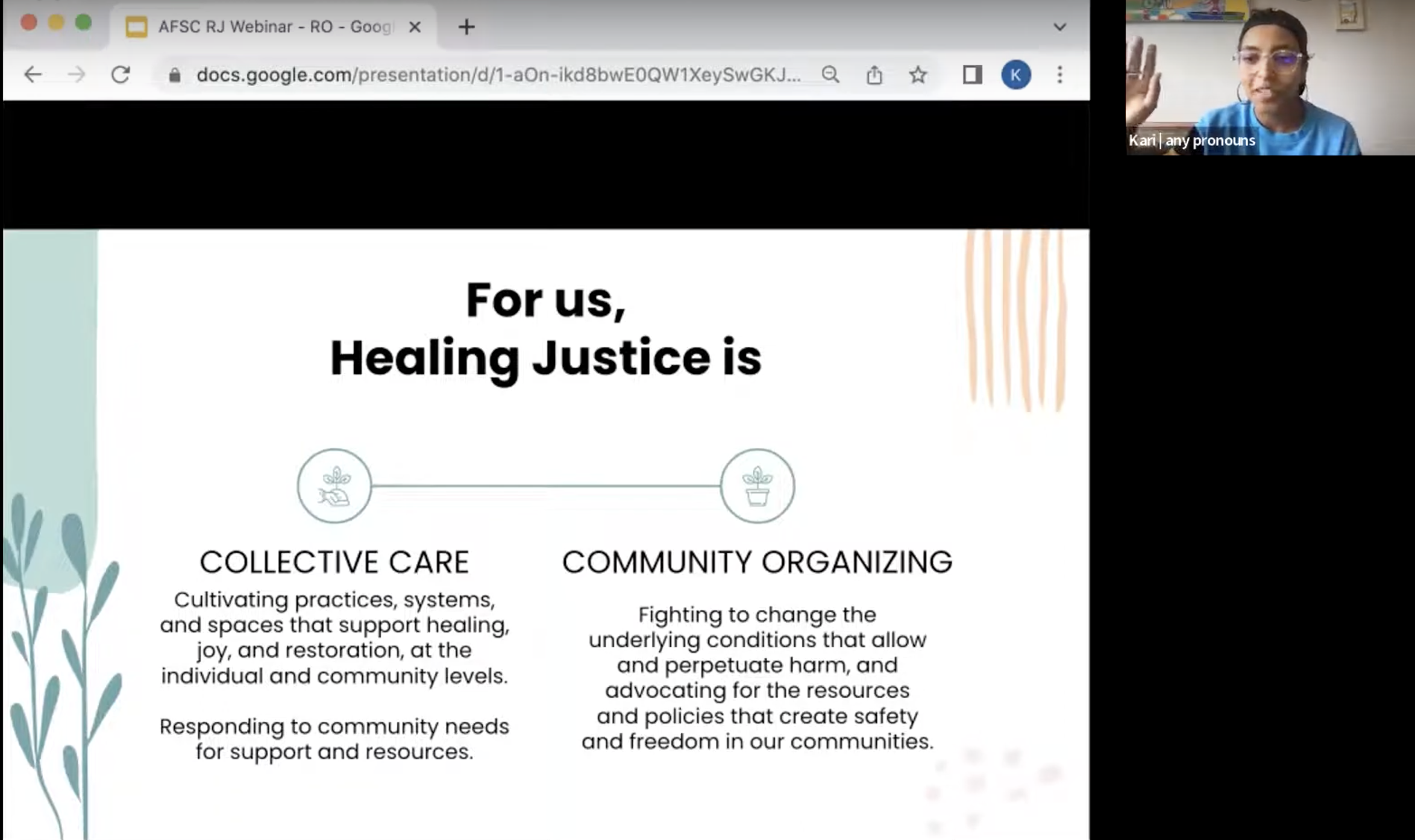AFSC’s California Healing Justice Program works towards answering this question in California, and one of the ways we do this is through changing state law.
This year, AFSC is working in two different coalitions to move California towards justice. These bills will reduce reliance on mass incarceration in favor of restorative, healing practices.
The Restorative Justice Integrity Act (AB 2833)
In creating safer communities where we rely less on police and prisons, we must create paths to communal healing and accountability when harm occurs. Restorative Justice and circles process is one such way. Last year, AFSC and coalition partners supported a bill to create awareness of alternatives to prison. The bill became state law, and an important step to offering people harmed by a crime an alternative method to address their needs.
Participating in Restorative Justice practices requires openness and vulnerability from all involved. But it’s hard to be vulnerable if something said in the Restorative Justice process could be used against you in a court of law. AFSC and coalition partners are sponsoring a new bill from Assemblymember McKinnor, the Restorative Justice Integrity Act. This bill would protect admissions shared in a Restorative Justice process and give participants the security needed to fully participate.
If you are part of a Quaker Meeting or an organization that would like to share a letter of support for the Restorative Justice Integrity Act, please get in touch with us at CAHealingJustice@afsc.org for next steps.
Racial Justice Act 4.0 (AB 2065)
The Racial Justice Acts are a set of three laws that challenge racism in the courts. Together, they offer a path to petition relief to those who experience racial bias in the courts or during sentencing. One difficulty in seeking this relief is data that would show racial distributions of convictions or sentences are not publicly available. AFSC’s California Healing Justice Program once again works in coalition to remove this obstacle to justice.
Assemblymember Kalra’s new bill, AB 2065, would require that this data be made available to the public. If AB 2065 is passed, it will be possible to obtain and analyze data for similar convictions and show a sentencing disparity along racial lines. AB 2065 is an important piece of implementing the Racial Justice Acts and will make it easier for those who have experienced racism in the courts to prove it.
